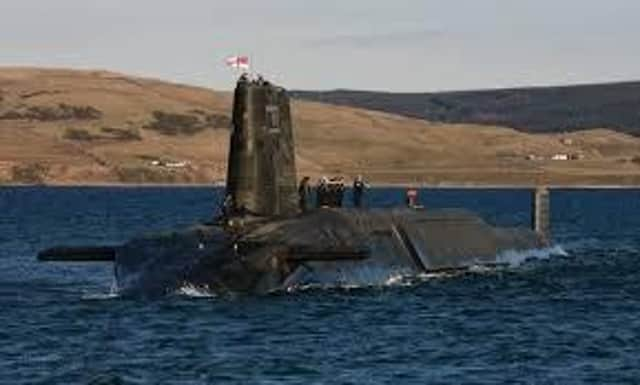Scottish Independence: Trident removal could scupper Scots Nato hopes


Sir David Omand has also questioned the ability of an independent Scotland to effectively establish its own security services after a Yes vote.
The former spy chief, who was born and raised in Glasgow, told the Herald on Sunday that Russia would seek to interfere in a future referendum on Scottish independence.
Advertisement
Hide AdAdvertisement
Hide AdThe Scottish Government's white paper on independence at the last referendum said it would see the removal of submarine-based Trident nuclear weapons from Faslane on the Clyde during the first term of a newly elected independent Scottish Parliament.
Sir David told the Herald on Sunday this approach “makes Nato membership problematic”.
One potential approach could be a "long lease on Faslane and Coulport [by England from Scotland] and you swallow your non-nuclear instincts.”
He added: "I have no answers to any of these problems, all I can point out is that it’s difficult and it’s expensive and I think I and my fellow Scots deserve to have the proposition fairly set out before any talk of a further referendum.
“There’s a risk of falling into magical thinking as you can’t actually say how any of this would be done – you’re just kind of assuming that somehow it will be.”
Previous work by CND has indicated that Trident could be removed from the Clyde within two years.
The 2013 referendum on independence states that Scotland would seek to have Trident removed within “the first term of the Scottish Parliament following independence.”
It adds: “The detailed process and timetable for removal would be a priority for negotiation between the Scottish Government and the Westminster Government.”
Advertisement
Hide AdAdvertisement
Hide AdSir David warned there would “certainly be attempts to interfere” with a Scottish referendum campaign in future by Russian cuber attackers.
And although the British security services have never infiltrated the Scottish independence movement, he added: “If there was evidence of a foreign state interfering in the referendum or trying to subvert the movement … then of course that would be a legitimate target."
A message from the Editor:Thank you for reading this article. We're more reliant on your support than ever as the shift in consumer habits brought about by Coronavirus impacts our advertisers.
If you haven't already, please consider supporting our trusted, fact-checked journalism by taking out a digital subscription.
Comments
Want to join the conversation? Please or to comment on this article.